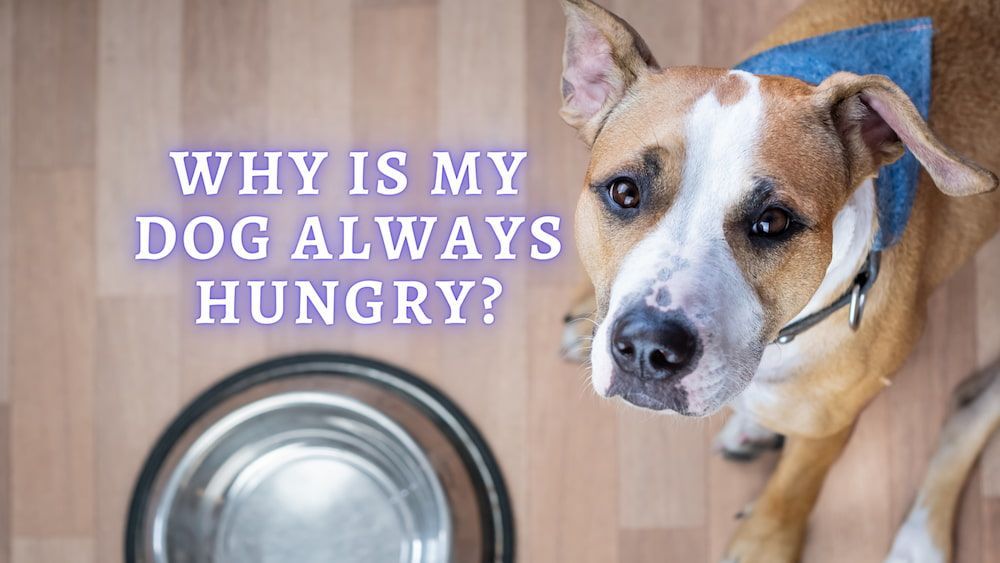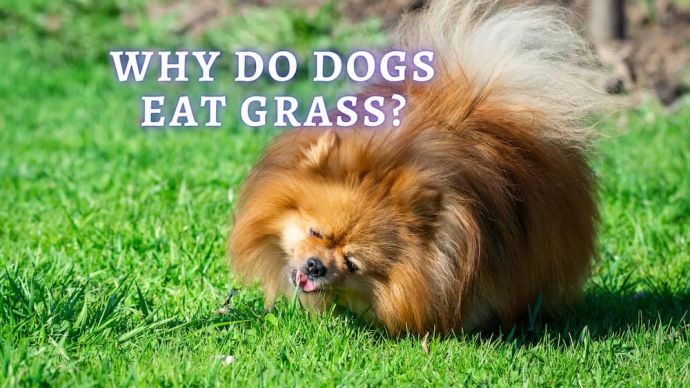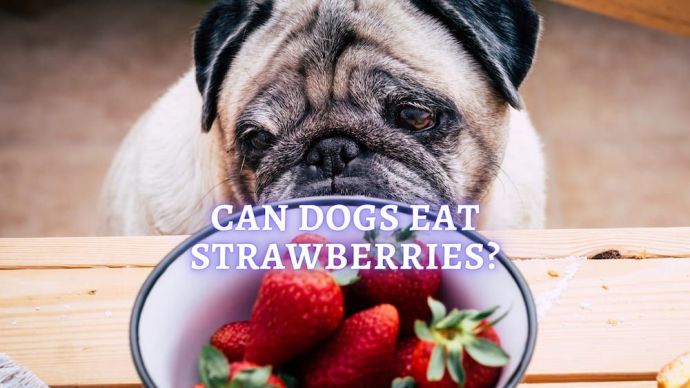Why Is My Dog Always Hungry? Reasons Why You Dog Always Begging For Food
Written by:
Author: Marissa Prizio
Marissa Prizio attended the University of New Hampshire and earned a bachelor's degree in biomedical Animal Science. Marissa has always enjoyed writing; she was even mixing literature classes into her science major in college. During her writing career, she has edited eBooks, written for a variety of websites, and created audio-visual courses for sustainability.
View all 36 articlesLearn about our editorial process and veterinary review board.
Viewed: 4957
Updated on: 09/15/2021
Learn why your pet seems to be a bottomless pit when it comes to food.
Those big puppy dog eyes have a way of melting our hearts, but sometimes they aren’t looking at us. Far too often, it seems like our pups are fixated on food. Even right after eating enough food, they sniff, scavenge, and beg for more.
All of this starving behavior leaves many dog owners feeling confused and concerned. Why is my dog always hungry? Maybe they are still hungry, but what if I am overfeeding them? Could something be wrong with their health? So many questions come to the surface when we face the simple state of hunger in dogs. Let’s break this topic down, so you can enjoy some bite-sized tips concerning your dog’s food obsession.
Should I Be Worried About My Dog’s Hunger?
Hunger is not necessarily a sign of health problems, but there are a few cases where it can arise as a symptom.
If your dog’s hunger has been pretty consistent throughout their lives, there is good chance health issues are not involved, and you can move on to learning the psychological factors behind hunger in dogs. However, it never hurts to bring up this topic with a vet, especially if your hungry dog is experiencing a sudden increase in hunger.
1. Parasites
These creepy crawlies have spent decades evolving in hopes of sneaking their way into an animal, which often includes dogs. While preventative measures exist for some parasites, like heartworm, there are plenty more parasites that can slip by us no matter how hard we try to protect our pets.
Parasites come in many forms, including roundworms, hookworms, whipworms, and tapeworms.
All of the parasites listed here reside in the intestinal tract, and many of them lead to dog’s stomach upset as they take nutrients from their host. Tapeworms are the largest worms in this category, and as such, they tend to take the most nutrients from your pup’s food. [1]
Having such a parasite means that regardless of how much your pet eats, they unknowingly share a portion of the energy from that food with the parasite inside of them. As a result, they will feel as if they have eaten less than normal and still be hungry. Luckily, most of these parasites can be found through a veterinary assessment of a fecal sample, and medication can be prescribed so your dog can return to perfect health. [1]
2. Hyperthyroidism & Cushing’s Disease
The thyroid is an interesting gland that humans have in common with dogs. Despite its small size, this gland pacts a big punch. It is the factor that controls metabolism, which is the rate at which our bodies digest food, grow specific attributes, and complete many other internal chemical processes. [2]
The thyroid is prone to disease like every other organ, and certain conditions can cause the thyroid to speed up the body’s metabolism. An increase in the body’s metabolism due to thyroid malfunction is known as hyperthyroidism, and such an increase can leave your pup feeling hungrier than usual. Another sign of this condition is weight loss despite your dog’s increased appetite. [2]
Cushing’s disease is another hormonal complication, but this one takes place in the adrenal glands where too much cortisol is produced. This stimulates a dog’s appetites and often comes with a pot-bellied and overweight appearance.
These health issues can only be diagnosed by a vet and commonly require blood tests to determine their intensity. The good news is the conditions here are treatable.
3. Diabetes
Increased thirst is commonly associated with diabetes, but did you know that increased
hunger can be a sign as well? An increase in appetite is most common in diabetes mellitus, which is a form of diabetes that is specific to a malfunction of the pancreas. [3]
Pets with this condition do not produce enough insulin, and this can happen at any point in their life. As a result, glucose, the body’s primary source of energy extracted from food, can not be efficiently transported into the body’s cells for use. Cells need the energy to survive, so if they can’t get the glucose it moves on to breaking down fat in the body. This will leave your dog looking thin and feeling very hungry as they are desperately trying to absorb more glucose. [3]
This condition is commonly assessed through bloodwork and treated with a combination of insulin administration and nutrition changes.
4. Intestinal diseases
Intestinal diseases may cause your dog to be a bit painful, but they can also increase their appetite. This is because some conditions, like inflammatory bowel disease, cause nutrient-rich food to vacate the intestine before it can fully digest. [4]
RELATED: How Long Does it Take a Dog to Digest Food?
In a way, intestinal diseases can cause your hungry dog to get far fewer nutrients out of their food and leave them feeling empty, so they will want to eat more to compensate. Diagnosis and treatment can be a longer path concerning the intricacies of intestinal diseases, but they can often be managed with proper medical care and a possible change in a dog’s diet.
5. Cancer
We hate to see it on any medical health search, but its presence must be addressed. Cancerous growths demand nutrients from the body as they develop, and this demand for nutrients can show signs like an increased appetite. [5]
This does not happen with every form of cancer, but if you see your dog has rapidly developed growth, it is worth seeing a vet. Cancer comes in a variety of forms, severities, and there are also many assessment and treatment options.
6. Side Effects Of Medications
If your dog is starting a new medication as prescribed by your veterinarian, be sure to make yourself aware of any possible side effects. Medications like anabolic steroids and glucocorticoids are known to trigger a significant increase in appetite. [6]
Is It Normal For Adult Dogs To Have Increased Appetite?
Don’t get too worked up over the health conditions that can be related to your dog having an insatiable appetite. It is also quite common for dogs to be hungry or act it in hopes of getting you to give them treats.
Most veterinarians recommend that dogs be fed a minimum of twice a day. [7] The caloric content of those meals should depend on your dog’s age, weight, breed, and any associated medical conditions. With proper nutrition, even a hungry dog can be healthy. In general, it is normal for them to be excited for their next meal or a special treat, as long as there isn’t any abnormal weight gain or weight loss.
READ MORE: How Long Can a Dog Go Without Eating?
Is It Normal For Puppies To Have A Big Appetite?
Puppies have big appetites for a big reason; they need to grow! It is generally recommended to feed your puppy a meal four times a day when they are 6 to 12 weeks old, and by the time they are 3 to 6 months old, they move on to have regular meals three times a day. [8]
This intensive feeding schedule helps your pup obtain the nutrition they need to gain weight and grow strong during their most intense age of growth.
This may seem like a large number of meals, but it is completely normal for well-fed puppies to have a huge appetite as long as they are otherwise healthy and dewormed.
READ MORE: When Do Puppies Stop Growing?
Is My Dog’s Hunger All In Their Head?
Your dog maybe thousands of years of evolution away from their wolf ancestors, but they do share an innate behavior or two. While it has yet to be proven, some experts believe that dogs try to eat food whenever possible because they still have an “eat while you can” mentality. Others believe that it is a result of eating too fast, which is another survival behavior to prevent their food from being stolen by other dogs. [9]
It is important to note that even if your dog lives a plush lifestyle in a warm house, they may still act on these intrinsic feeding behaviors. Other times it could be the result of your dog understanding that persistently begging a human often ends in a treat, so they act out in hopes of more treats. Even if it doesn’t seem like it, your dog can learn how you react to their behaviors and use that to their advantage. The better the treats they get for acting up, the more they will beg. [9]
Even if you aren’t giving them scraps and treats, family or friends may be, so get everyone on the same page.
Dogs can beg even if they aren’t truly hungry, just as we can somehow find room to eat dessert after a big dinner, they can always find room for treats.
Is There Anything I Can Do To Curb My Dog’s Hunger?
- Slow feeder bowls and food puzzle toys encourage your dog to eat slower and may help them feel fuller. [10]
- Consider what’s on your dog’s menu. Feeding food that is nutrient-dense and not “puffed” with air or pumped with fillers may make your dog more satisfied.
- Fiber-rich and calorically light foods like pumpkin or steamed green beans can be added to your dog’s meal to bulk it up in a healthy way. [10]
- Do not reward begging with treats or human food. A strict feeding schedule with no shortcuts can train your dog to give up on acting hungry simply because the food you’re eating looks good.
- If your docs hunger seems to stem from a learned behavior training can help. A well-trained dog will know it is inappropriate to beg. This training may take some time so be patient and make sure family members in the house are aware.
Frequently Asked Questions:
Why does my dog act hungry constantly?
Excessive hunger in dogs can stem from a range of triggers. There are many physical and psychological reasons why your pouch seems to be hungry constantly. Understanding why your dog acts this way is the first step to solving their constant hunger.
What is causing my dog’s excessive hunger?
An insatiable appetite in many dogs can be caused by behavioral triggers. However, if a dog has excessive hunger that happens suddenly, there could be medical concerns to blame.
What can I feed my dog to help them feel full?
Start with a good base by ensuring that your dog food is full of nutritious ingredients instead of fillers and scraps. If your dog is still hungry after they eat a reasonable amount of food, there are plenty of fruits and vegetables that can be added to their menu for some extra fiber and fullness without the calories.
What do you feed a dog that is always eating?
A dog that is always hungry should be fed a well-rounded diet that is not supplemented with any kitchen treats, table scraps, or unsafe “human foods.” If their increased appetite had a sudden onset, it may be the result of an underlying medical issue, and seeing a vet could be beneficial. It is not a good idea to feed your dog whenever they beg since overfeeding can lead to obesity and a range of other health issues.
Article Sources:
- Ward, Ernest, and Catherine Barnette. “Internal Parasites in Dogs.” VCA Animal Hospital, vcahospitals.com/know-your-pet/internal-parasites-in-dogs.
- Williams, Krista. “Hypothyroidism in Dogs.” VCA Animal Hospital, vcahospitals.com/know-your-pet/hypothyroidism-in-dogs.
- Williams, Krista , et al. “Diabetes Mellitus in Dogs – Overview.” VCA Animal Hospital, vcahospitals.com/know-your-pet/diabetes-mellitus-in-dogs-overview.
- Williams, Krista, and Ernest Ward. “Inflammatory Bowel Disease in Dogs.” VCA Animal Hospital, vcahospitals.com/know-your-pet/inflammatory-bowel-disease-in-dogs.
- Williams, Krista, and Kristiina Ruotsalo. “Testing for Increased Appetite.” VCA Animal Hospital, vcahospitals.com/know-your-pet/testing-for-increased-appetite.
- Dowling, Patricia. “Drugs Affecting Appetite (Monogastric).” Merck Veterinary Manual, 1 Mar. 2015, merckvetmanual.com/pharmacology/systemic-pharmacotherapeutics-of-the-digestive-system/drugs-affecting-appetite-monogastric.
- “How Many Times a Day Should a Dog Eat? .” American Kennel Club, 21 Apr. 2021, akc.org/expert-advice/nutrition/how-many-times-a-day-should-a-dog-eat/.
- “How Much & How Often to Feed Your Puppy/Dog.” Hill’s Pet Nutrition, 26 Jan. 2021, hillspet.com/dog-care/nutrition-feeding/how-much-dog-food-how-often.
- “How To Keep Up With A Dog That’s Always Hungry.” PetCareRx, petcarerx.com/article/how-to-keep-up-with-a-dog-thats-always-hungry/5222.
- Gilpatrick, John. ”5 Ways to Keep Your Dog Feeling Full.” 14 Oct. 2021, PetMD, petmd.com/dog/slideshows/5-ways-keep-your-dog-feeling-full.
 Dog Care Dog Stung By Bee: What To Do If Your Dog Gets Stung By A Bee? (Vet Approved Advice)
Dog Care Dog Stung By Bee: What To Do If Your Dog Gets Stung By A Bee? (Vet Approved Advice) - 94
- 0
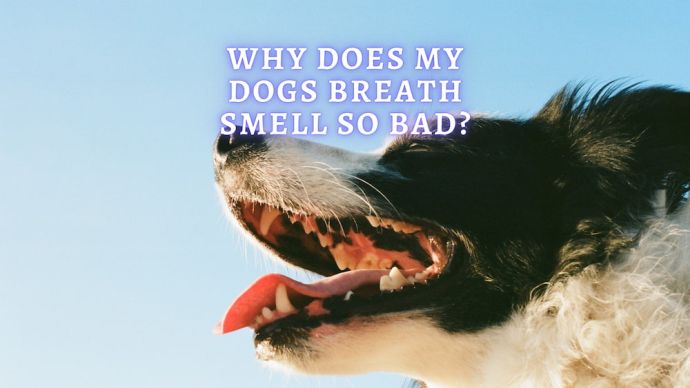 Dog Care Dog Bad Breath: Why Does My Dog’s Breath Smell So Bad? (Vet-Approved Advice)
Dog Care Dog Bad Breath: Why Does My Dog’s Breath Smell So Bad? (Vet-Approved Advice) - 79
- 0
 Dog Veterinary Tips Why is my Dog throwing up: Causes and Preventing (Veterinary Advice)
Dog Veterinary Tips Why is my Dog throwing up: Causes and Preventing (Veterinary Advice) - 23424
- 5
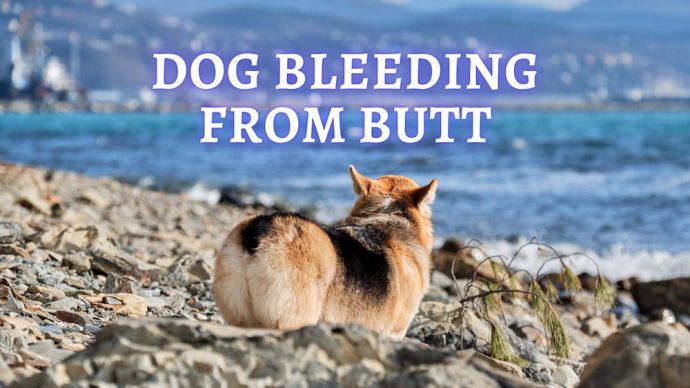 Dog Care Why Is My Dog Bleeding From Its Butt? Causes and treatment of rectal bleeding in the dog
Dog Care Why Is My Dog Bleeding From Its Butt? Causes and treatment of rectal bleeding in the dog - 22074
- 0
 Dog Care My Dog Keeps Scratching His Mouth: Reasons Why Your Dog Scratching Face
Dog Care My Dog Keeps Scratching His Mouth: Reasons Why Your Dog Scratching Face - 17560
- 1









